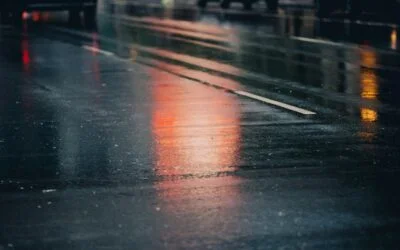October in Georgia means haunted houses, pumpkin patches, hayrides, and corn mazes. These attractions are fun—until poor lighting, overcrowding, unsafe props, or negligent staffing turn a night out into an ER visit. If you or your child is hurt at a seasonal attraction, understanding how Georgia premises liability works (and what to do in the first 24–48 hours) can protect your health and your personal injury claim.
Seasonal venues are unique because operators often transform warehouses, barns, and fields into temporary attractions with stairs, ramps, fog machines, strobe lights, animatronics, and moving sets. When crowd control is lax, exits are unclear, or surfaces are slick with rain and hay, foreseeable hazards can cause serious injuries: concussions from low ceilings, fractures from falls on unmarked steps, lacerations from protruding nails or broken props, twisted ankles in dark corn rows, or whiplash and back injuries on tractor-pulled hayrides without proper seating. Add fire pits, food vendors, generators, and extension cords and you have a lot of risk packed into a small space.
A common question is whether a ticket waiver blocks your claim. In Georgia, a waiver does not excuse gross negligence or hazardous conditions the operator should have corrected. You do assume certain obvious risks (being startled, walking on uneven ground), but you do not assume risks created by code violations, hidden defects, overcrowding that prevents safe movement, untrained staff, or noncompliant equipment. If a haunted house markets extreme scares, it must still provide reasonably safe premises, adequate lighting where needed, safe egress, and trained personnel to respond to emergencies.
Liability depends on who controlled the hazard. Property owners and the attraction operator owe invitees a duty to keep the property reasonably safe and to warn about hidden dangers they knew or should have known about. That can include maintaining walkways and stairs, using slip-resistant surfaces where moisture is expected, posting clear signage, staffing entrances and exits, limiting capacity, inspecting props and set pieces, securing electrical cords, and providing adequate lighting outside scare zones. Third-party vendors—ride contractors, security companies, food operators, and prop builders—may share responsibility if their negligence contributes to an injury.
If an injury happens, put health and evidence first.
What to do after a fall or attraction injury
- Seek medical care immediately. Request on-site first aid and call 911 if needed. Concussions and internal injuries often show hours later—follow up with a doctor.
- Document the scene. Take wide and close photos of the hazard (step, ramp, cord, wet surface, broken prop), lighting conditions, crowding, and any missing warnings.
- Get witness info. Collect names and phone numbers for friends, bystanders, and staff who saw the incident or the unsafe condition earlier in the night.
- Report it in writing. Ask management for an incident report and keep a copy or photo; note the manager’s name and the time.
- Preserve your footwear and clothes. They can show residue, moisture, or debris that explains why you slipped or tripped.
- Avoid recorded statements. Do not speculate about fault or “feeling fine” with an insurer until you’ve spoken with an attorney.
In a Georgia personal injury case, recoverable damages can include ER and follow-up care, imaging and therapy, lost wages or reduced earning capacity, pain and suffering, scarring, and replacement of damaged items like glasses, phones, and mobility aids. For children, schools may need accommodations; keep attendance and counseling records to show impact. If an operator’s conduct was reckless—overcrowding exits, disabling emergency lighting, ignoring repeated complaints—punitive damages may be available to deter similar behavior.
Evidence disappears quickly at pop-up venues. After an incident, operators may fix lighting, remove tripping hazards, or change traffic flow before doors open the next evening. Fast action matters: request that surveillance footage be preserved, note the exact location within the attraction, and save your ticket and time-stamped photos or videos from your group.
Gunn Law Group moves quickly to secure incident reports, preservation letters for video, maintenance and staffing logs, vendor contracts, and any applicable building or fire code records. We work with safety and human-factors experts to evaluate visibility, crowd density, signage, and compliance, then build your claim with clear medical documentation. Our goal is simple: protect your recovery while we press every responsible party and insurer for full compensation.
If a fall, ride incident, or unsafe condition at a haunted house, corn maze, or fall festival derailed your October, don’t go it alone. Need a home run? Call the Big Gunn at 888-BIG-GUNN for a free case review with an Atlanta premises liability lawyer who knows how to win seasonal attraction claims.




